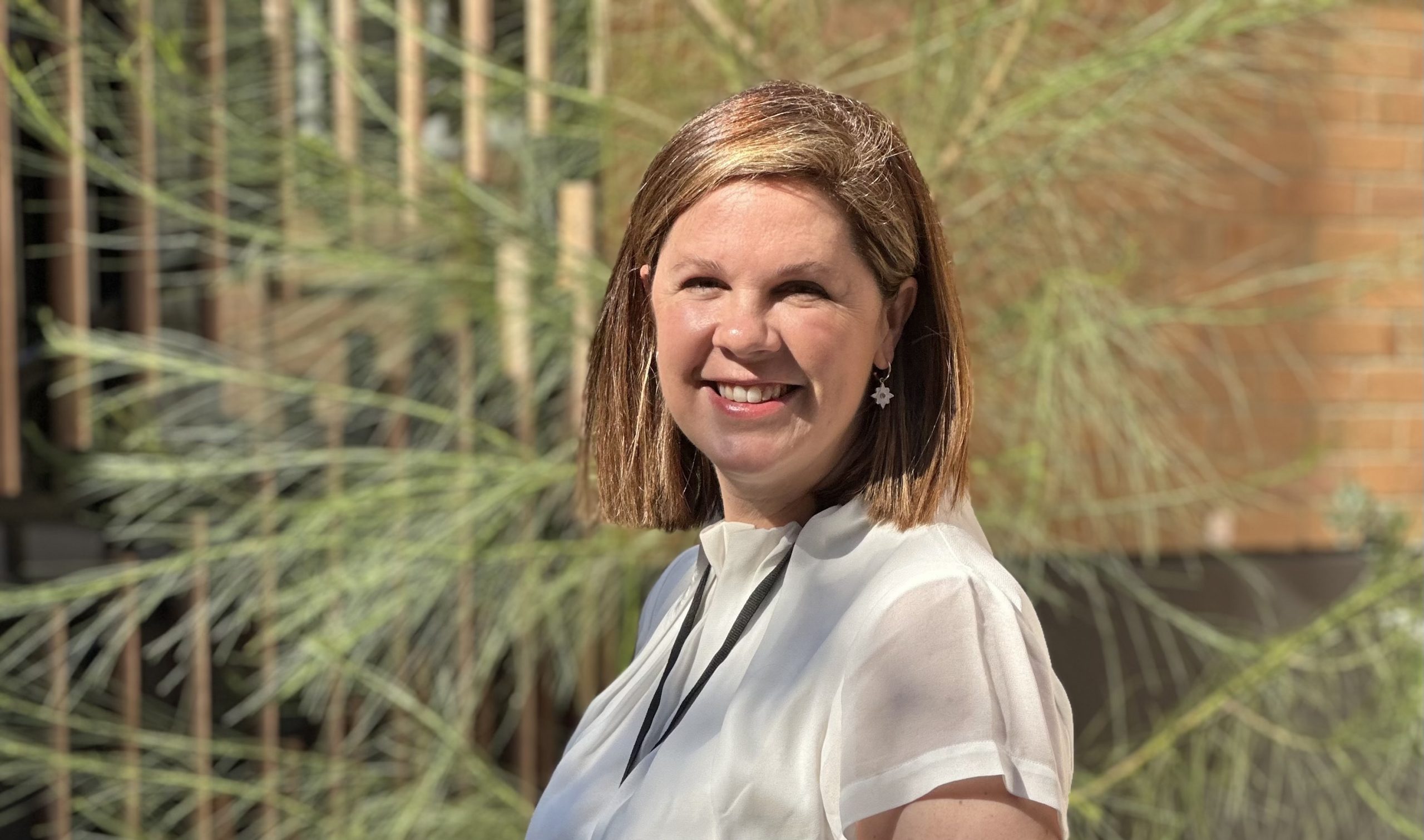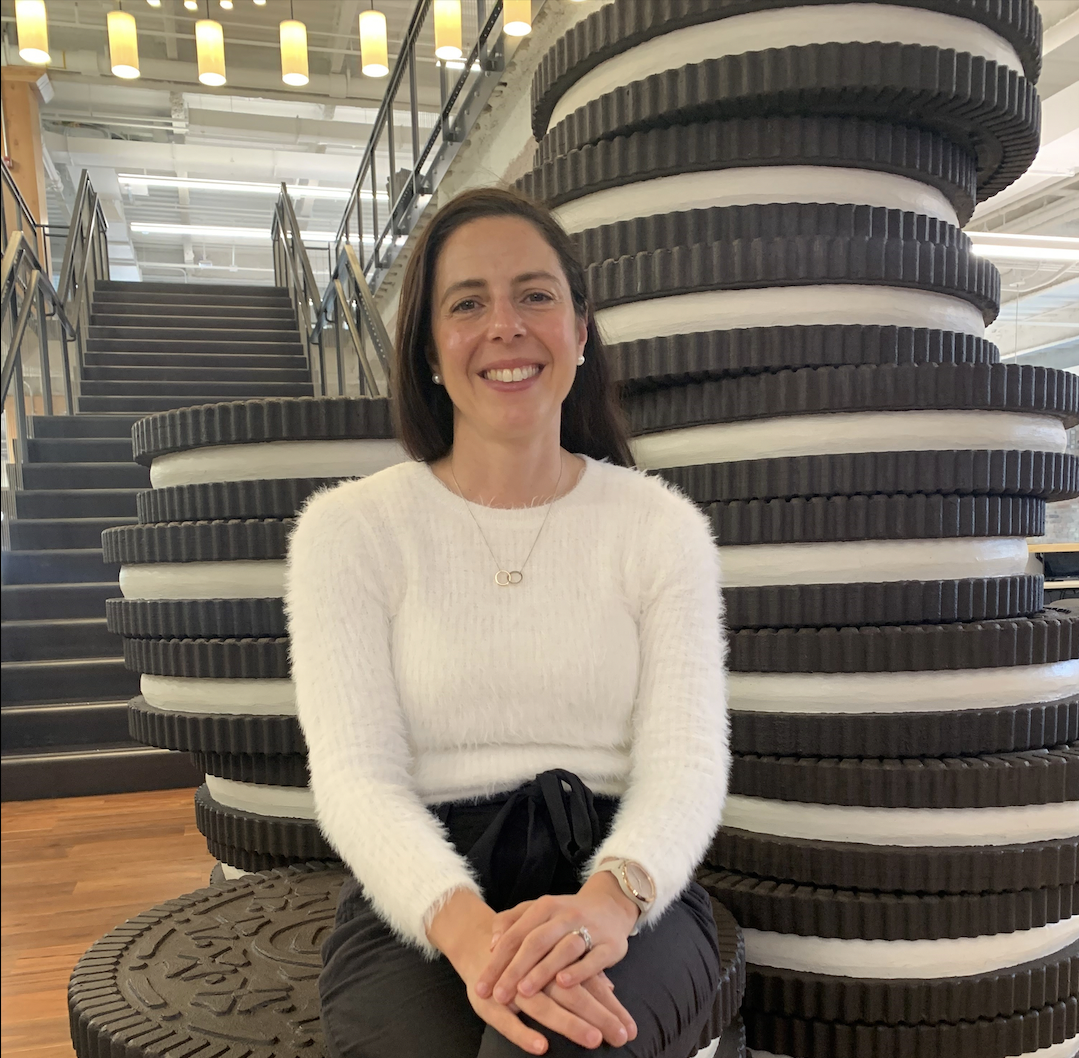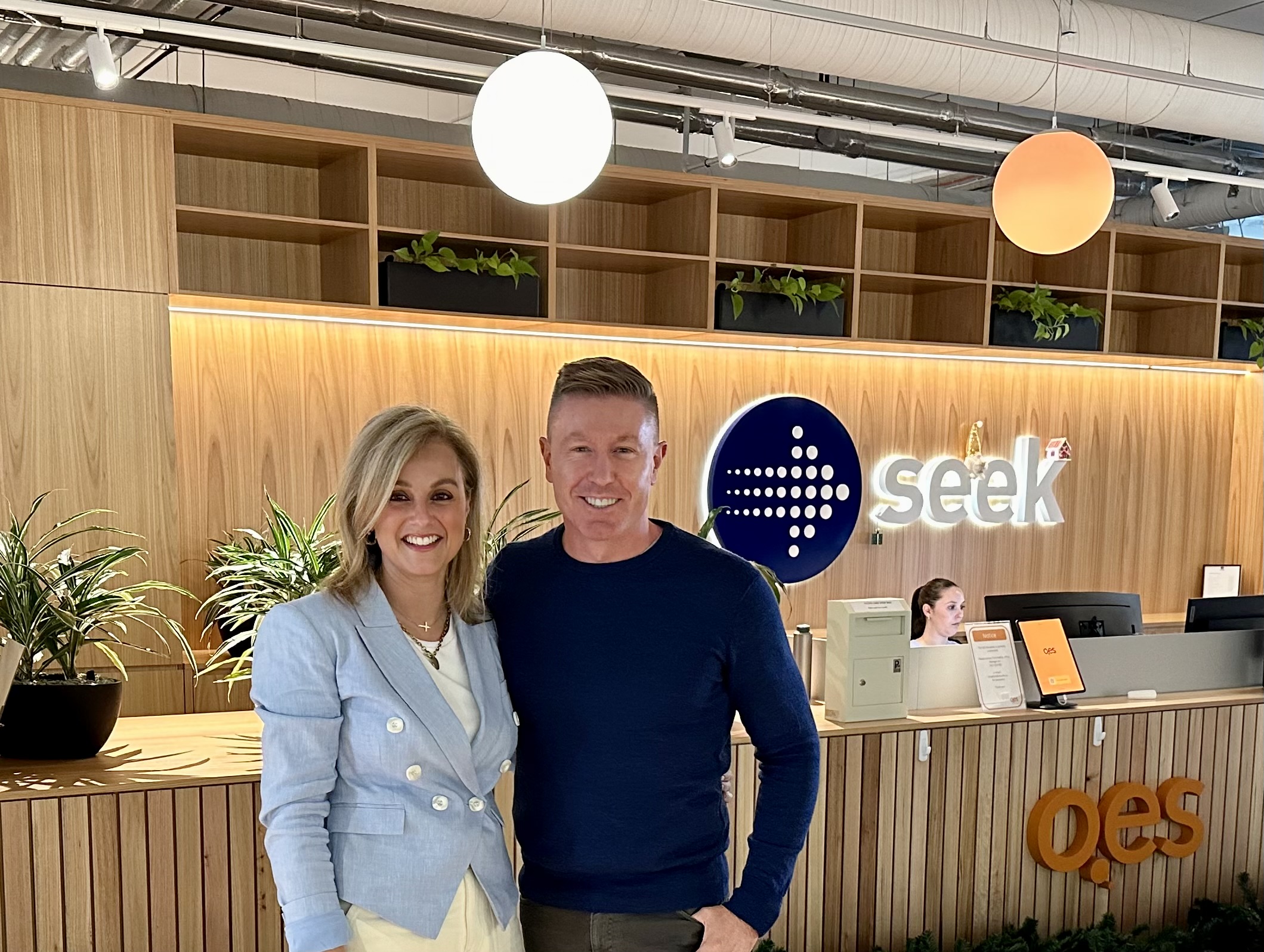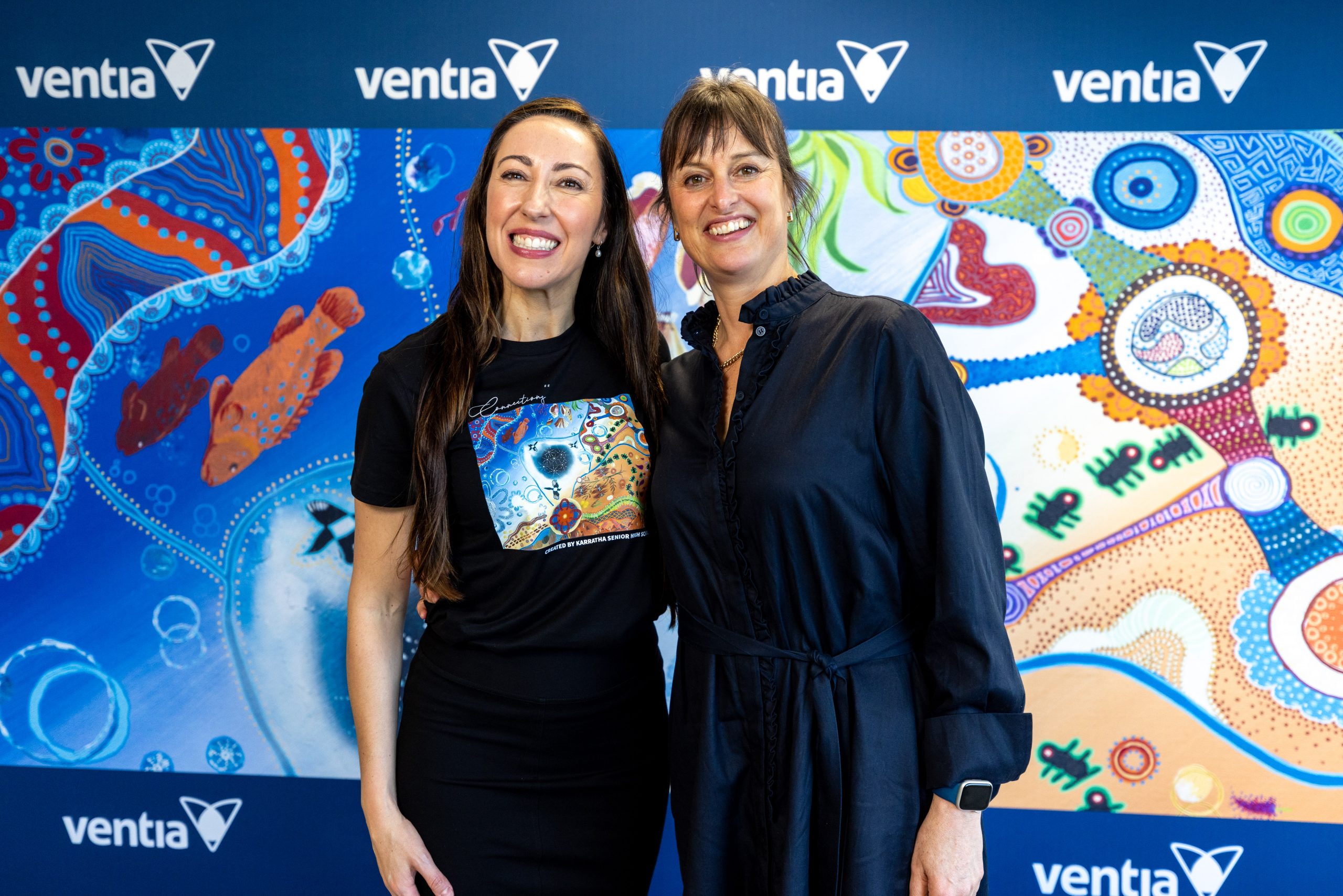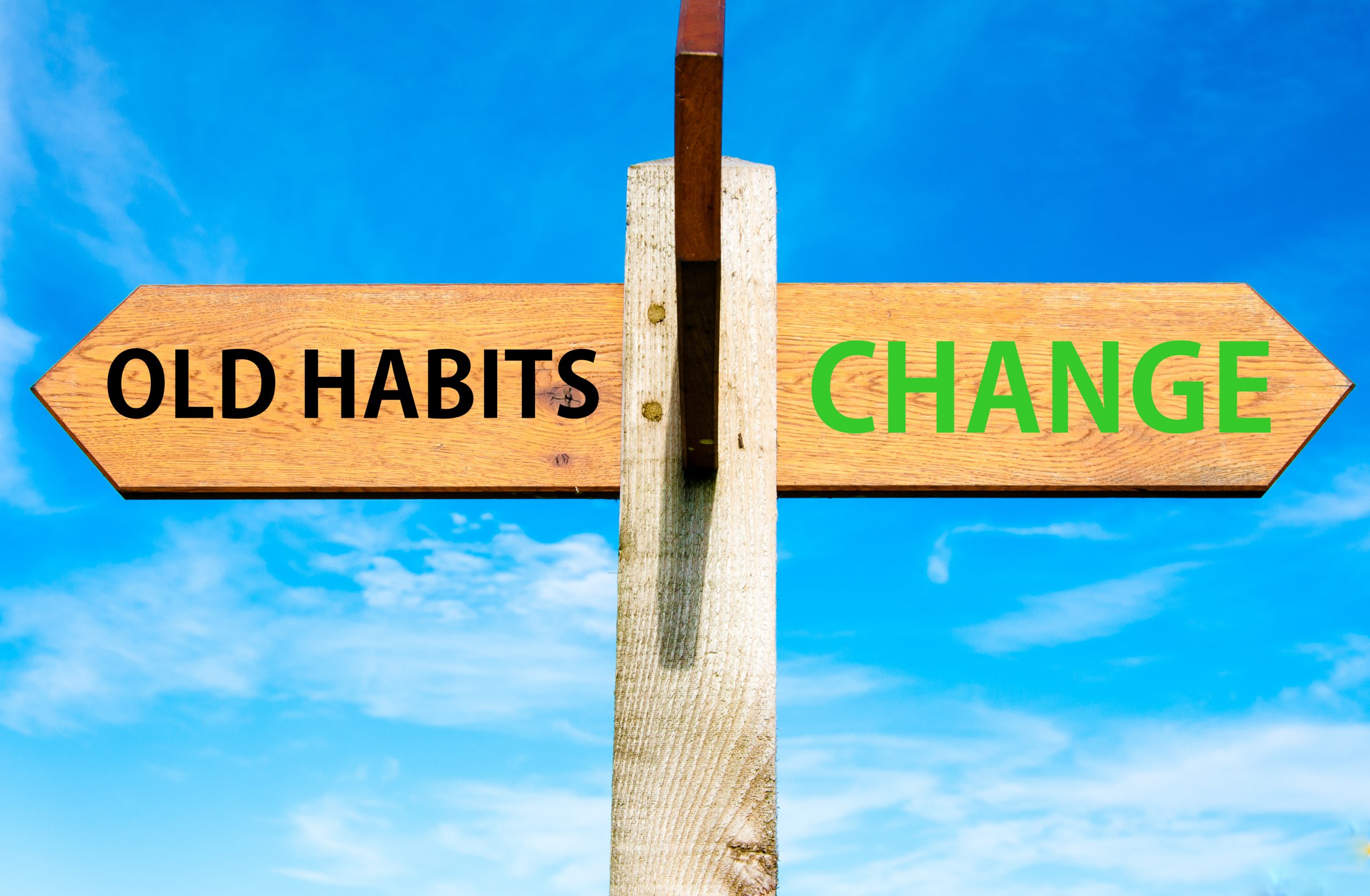Dan has spent the past 25 years building a profile for himself as a strategic communications professional with empathy. One who listens and puts the audience first; always. That’s what he values. That’s what he prides himself on.
His skills and strategic communications counsel have been instrumental in helping the businesses he’s worked with to build and protect their corporate reputations, as well as engage and inspire their employees.
Dan’s expertise has been valued in the comms space across many industries, including retail (Myer, Coles and Target), FMCG (Treasury Wine Estates, Cadbury and Kraft) government business enterprise (Australia Post) and now, of course, in the technology sector at SEEK.
As much as Dan relishes his career – and this current era at SEEK – if you’d asked him 28 years ago what he’d be doing today, he would have told you something quite different.
Bianca: What drew you to comms in the first place?
Dan: Well, I didn’t start out wanting to work in comms. To give you an insight, we’ve got the SEEK Christmas party soon and the theme is ‘My fantasy job’. I’m going as Ron Burgundy. (Side note: for those who don’t know, Ron is Will Ferrell’s moustachioed and outrageously hilarious news anchor character from the movie Anchorman.)
I always wanted to be a news journo. I studied journalism at university and spent a couple of years in local newspapers and in TV, but I quickly learned it wasn’t for me. I got disillusioned with the fact that an interview only really shows the slice that editing allows you to see. While there were many elements of journalism I enjoyed, I just couldn’t reconcile the part of me that wanted to consider the audience, with the journalistic need to pursue and push an angle.
Bianca: So how has comms felt like the right fit for you?
Dan: It aligns more closely with my values. For me, it’s important to look at things through a different lens. Every person has a different range of needs and I’ve always felt that it was important to identify those needs and empathise with my audience. I often say to my team and my stakeholders “start with the audience”. It’s not about what you want – the story you want to tell. It’s about what they need and where they’re at in terms of receiving your message.
I guess because I started out working in customer service (McDonald’s then Myer), while I was at university, it was really fertile ground for learning about putting the customer – and their needs – first. Fast forward to today, and I can see how that definitely sowed a seed in me for wanting that real two-way communication. Journalism just wasn’t nurturing that for me.
Bianca: In your view, what are the unique challenges for strategic communications today?
Dan: Technology is fundamentally changing the landscape of comms as we’ve known it. There’s AI of course. And then there’s the fragmentation of channels due to new technology platforms. It’s much more complex for us now in terms of how we reach our audiences and how we manage all these channels.
But I don’t see advances like AI as necessarily coming for our jobs. Until AI can think critically for us, understanding all the unique needs of the business and society, and doing that with empathy for the audience – then I think we’re pretty safe in our role as communicators. On the contrary, once it gets better at communication outputs, it will free us up to do more strategically, which is the input to all good comms. Having the time to do that critical thinking is a fundamental skill for all communicators and all people in business really.
The biggest challenge related to such advanced technology though is the issue of trust that comes with the risk of deep fakes, imagery being manipulated, data being compromised. These will only continue. Staying ahead of these risks is one of the biggest challenges for our industry right now.
At SEEK, we spend so much time, energy and money around this, but also on a culture that fosters trust. It’s about empowering people, celebrating uniqueness, asking for different perspectives. That’s how you earn people as your brand ambassadors.
Bianca: How important is empowering people?
Dan: It’s vital. Being able to scale critical communication thinking by empowering our people doesn’t threaten our profession – it only leads to a higher quality output, which elevates our function enormously. Investing in communication capability – scaling it so that our people can be better communicators and better writers – that helps them in their job and it gives them better life skills. That’s how we can add long-term value.
Bianca: You’ve been in the game for a long time … what’s the biggest change you’ve seen in comms over the years?
Dan: When I started out, it was very much about reputation protection, reaction, preparing for the worst case scenario. There was less focus on the flipside: the opportunity that can come with good management of such risks. The trust that you can build when you manage a less than ideal situation well. I’ve seen a transition to comms people having more radar for opportunity; and that only increases the value we can add in a business. It’s a good transition.
I’ve been so privileged working here at SEEK with an entrepreneur like Andrew Bassat, the founder of the business. He’s always seeing the opportunity. He’s helped me balance my standards around risk and opportunity. This industry is so fast paced, we’re trialling products and segments before we’ve had time to identify if it will work. But people need to feel like they can fail because from failure comes the opportunity to learn.
Here, it’s less about short-term financial gains and more about building long-term value, with a view to what people need. And that aligns so well with my personal values. It’s made me a better businessperson working here. And that’s made me a stronger communicator.
Bianca: On a lighter note … if you could give your younger self some career advice, what would it be?
Dan: I’d say “You’ll get to view the world through a different lens. It might not seem like it now, but the world is so much bigger and more diverse – and accepting. In this job, you’ll get the opportunity to understand diverse perspectives and walk in the shoes of others – that’s if you’re doing it well. Empathy is the most important trait you can have. In your job and in life. When you do this job well, you’ll get to see the positive impact of helping people feel genuinely valued, heard, respected and understood. When you see the work you do land in this way, that’s when you’ll know you’ve done a great job. That’s when you’ll get the warm fuzzies.”
Dan, we’re so pleased that the younger you chose the comms sphere: it’s a better profession for having you, and we get the privilege of working with you in it.
But don’t think you’re going to get away with not sharing a photo of you dressed as Ron Burgundy at your Christmas party. Now that; that we NEED to see (enough to even use shouty capitals).

